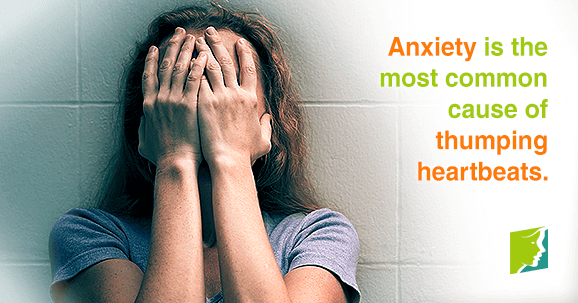Many people panic if they feel their heart making irregular sounds or beating unusually. However, many times this event is nothing to worry about, and it is a relatively common experience. Nevertheless, anyone with any concerns about his or her irregular heartbeat should schedule an appointment to see a doctor. Continue reading to discover what the most common types of irregular heartbeats are.
Thumping Heart
A thumping heartbeat is often described as sounding like an extra heartbeat. It is the kind of thumping in your chest that you experience after exercising. Anxiety is the most common cause of this particular irregular heartbeat, if it is not inspired by exercise. Taking time out to ease stress and release tension in your body can help your heartbeat return to normal.
Missed Beats
A missed beat can also be referred to as a skipped beat. This occurs when the heart's regular rhythm is interrupted by a premature beat, especially when the heart receives a signal to contract before it has completely filled with blood. In most cases, missing a heartbeat is not dangerous, and most people have experienced it at least once during their lifetime. Caffeine, alcohol, and stress are three common reasons why you might miss a heartbeat.
Heart Palpitations
Heart palpitations can feel like your heart is racing not only inside your chest, but also beating in your throat or neck. While a normal heart rate is between 60 and 100 beats per minute, heart palpitations are usually above this. Palpitations are not usually serious when not accompanied by other serious symptoms, but they can be uncomfortable and disconcerting.
Other Irregular Heartbeats
Although missed beats, heart palpitations, and a thumping heart are the most commonly experienced types of irregular heartbeat, you might find yourself suffering from different symptoms than the ones listed above. Heart disease, low potassium levels, or an abnormal heart valve can also contribute to an irregular heartbeat.
Irregular heartbeats are a common experience for many women and are not usually something that you need to worry about. They can feel as if your heart is slowing down or speeding up suddenly. Although this will usually correct itself after a few moments, if you have any concerns about your heartbeat, or have any underlying conditions that might put you at further risk, then you should consult your doctor.
For more information on irregular heartbeat and how to treat it, follow the links below.
Sources
- National Health Service UK. (2012). Heart palpitations. Retrieved October 10, 2013, from http://www.nhs.uk/conditions/Heart-palpitations/Pages/Introduction.aspx
- NYU Langone Medical Center Cardiac and Vascular Institute. (n.d.). Arrhythmias. Retrieved October 10, 2013, from http://cvi.med.nyu.edu/conditions-we-treat/conditions/arrhythmias



